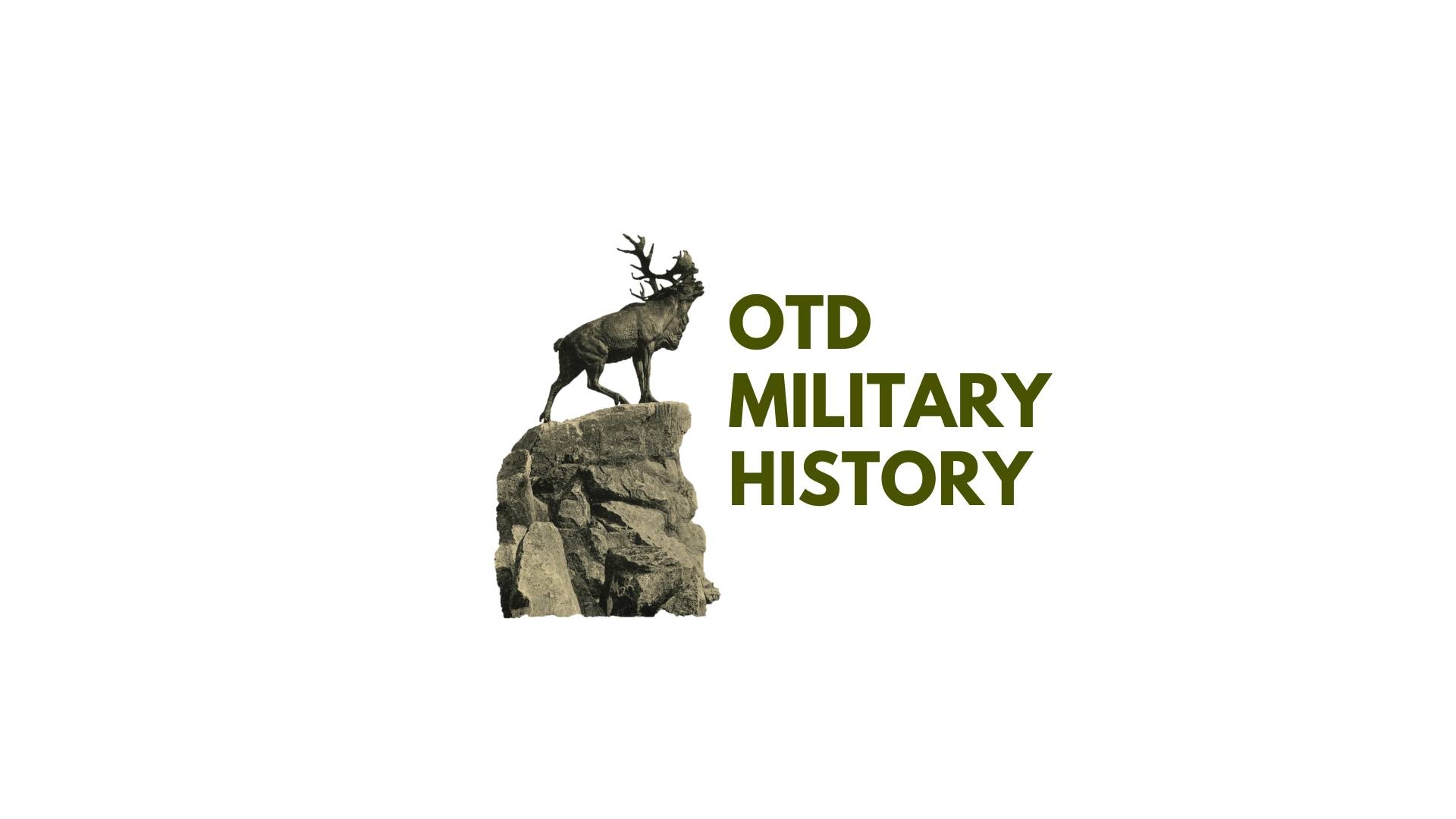
Historian and founder of OTD Military History, Brad St. Croix, breaks down an aspect of history on his YouTube channel. [@OTD Military History YouTube channel]
While the internet continues to be a hotbed for falsehoods, St. Croix has since founded the “On This Day Military History” brand as a trustworthy resource.
Here, St. Croix discusses the triumphs and pitfalls of his endeavours.
On his career pathI’ve been interested in military history since I was fairly young—probably too young for the subject matter. My fascination initially honed in on American military history, particularly the Pacific theatre of the Second World War.
I began pursuing that topic through my university studies, but my educational path subsequently turned toward the Canadian experience at the Battle of Hong Kong. Now, I still believe that’s an engagement that isn’t as well known as it should be.
While doing my PhD, I wanted to examine why Hong Kong is remembered so negatively in Canada. I also wanted to understand some of the battle’s myths.
The 1992 documentary The Valour and the Horror deserves plenty of blame. In the opening titles of the Hong Kong episode, they literally say everything was factual. That was a fabrication. Much of what followed was false or simply lacked context.
This happened before the digital age, and it certainly hasn’t gotten any better.
On founding OTD Military History
When Twitter was still Twitter [now X], it was big for networking. Around that time, I decided to build something for myself, not knowing where it might lead. I began by profiling Canadian military history events every day, every year. It grew from there to other social media platforms before I made a YouTube channel.
I’ve since ventured beyond Canadian military history to tell other stories.
Although it was slow going initially, I eventually started getting some attention. Bigger names began following me, from historians to Canadian institutions to individuals. I then had entire branches of the Canadian Armed Forces engage with my work.
There’s so much information out there, and it’s hard to cover it by yourself, so having a welcoming community really helps you—and I’m lucky to have one.
On tackling internet falsehoods
I like to say that [the online world] is the Wild West in a lot of ways. It’s very much uncontrolled. Vitriol and anger seem to be the internet’s default settings these days.
My academic focus was the Second World War, which came with telling stories of the Canadians fighting many unsavoury people, particularly in Normandy against the 12th SS [Panzer Division Hitlerjugend], a unit that even today has defenders.
The 12th SS has often and incorrectly been framed as an excellent fighting unit with elite troops—blah, blah, blah. For a little while, I almost believed it myself. I then started to examine it by learning more from people like [Canadian historians] Marc Milner and David Patterson. I soon realized that the narratives don’t hold water, that the 12th SS made several mistakes, claimed no major victories, and achieved little other than frustrating our advances. How, exactly, is that elite?
There were also falsehoods in digital public discourse surrounding the Canadians during the First World War. Through meme pages, Reddit and similar websites, a strange stereotype has been cultivated in which the Canadian military has been incorrectly framed as a brutal war crime-committing organization to its core.
Yes, Canadian war crimes happened. No, I’m not denying it. But in reality, despite being an unfortunate reality, all belligerent nations performed unsavoury deeds. The Canadians, however, were inexplicably treated as the worst perpetrators.
There can be a snowball effect with these kinds of myths, especially online. You try to challenge falsehoods, ruffling feathers in the process, and people get upset when you question their narratives. It’s worse when it’s anonymous, when certain internet users feel they can be as nasty as they want in making weak arguments.
Fundamentally, there’s a lot of disinformation out there. There’s a lot of racism out there. There’s a lot of antisemitism and ignorance and anger out there. I’ve been trying to fight against it. It’s the right thing to do as both a human and historian.
On the digitalization of public discourse
I’m hopeful. I’m always hopeful. Otherwise, I wouldn’t keep doing it. There are still people who are willing to learn and change how they think about things. The chances are that negativity will continue, but there’s a space to make an impact.
The future is trying to focus on the positive, which may occasionally mean leaving the angry to be angry and letting them yell into the void if that makes them feel better about themselves. I plan on focusing on those prepared to learn the truth.
This abridged interview has been edited for brevity and clarity.
Advertisement




















